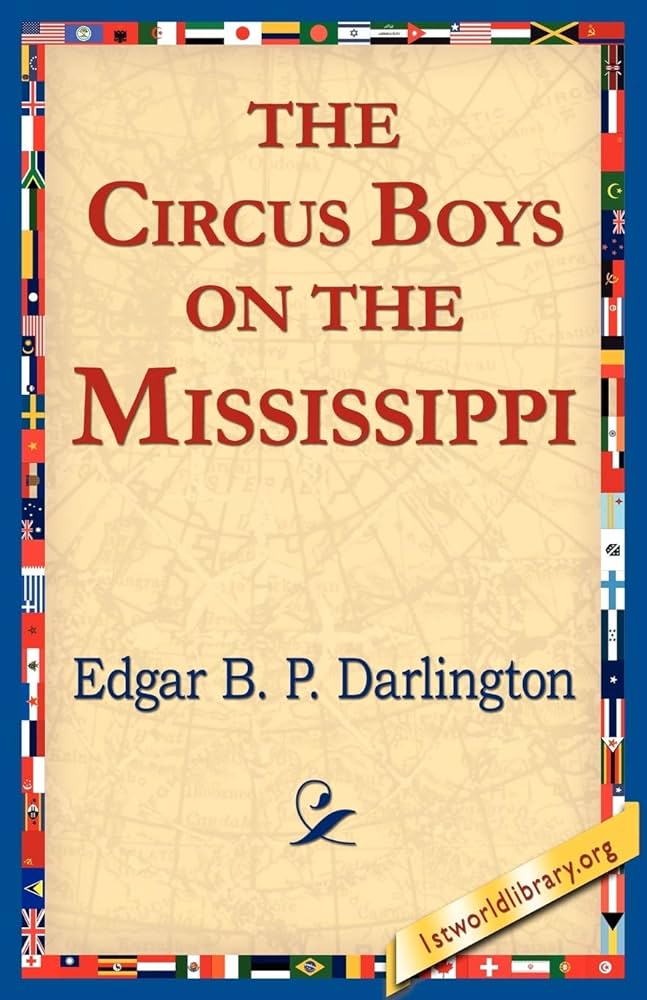Chapter XXIV — The Circus Boys on the Mississippi
byChapter XXIV opens with the sharp clang of hooves and the thunder of wheels as chaos erupts in the circus ring. Phil Forrest reacts instantly, vaulting toward a runaway chariot with reckless courage. His arms grasp the reins just in time, steering the horses away from a line of performers. The crowd cheers, unaware of the sabotage that set the disaster in motion. Phil’s uniform is torn beyond repair, but the damage goes deeper—one of the acrobats lies injured, and the chariot’s axle reveals signs of tampering. Suspicions swirl quickly through the camp, casting a shadow over what should have been a triumphant performance. As the show must go on, the tension backstage builds. It becomes clear someone within the circus seeks to sow destruction. Phil’s focus sharpens, not just to protect the audience, but to defend the tight-knit community that has become his home.
A growing sense of urgency grips the troupe. Each performer, roustabout, and animal handler becomes both suspect and ally. Trust, a fragile but vital thread in the circus world, is strained to near-breaking. Phil quietly investigates, observing odd movements, strange glances, and hushed conversations that lead him toward a shocking discovery. A saboteur has been hiding in plain sight, disguised by familiarity and cloaked in jealousy. When Phil confronts the individual beneath the shelter of the big top, emotions erupt. The scuffle that follows is brief but intense, and the truth tumbles out in fragments between fists and accusations. The motive? A long-standing grudge and a desire to see the circus crumble from within. With help from Teddy and a few loyal performers, Phil brings the truth into the open, ensuring the safety of the company.
The circus, wounded but not broken, binds itself tighter in the aftermath. The sense of betrayal is met with a resolve to move forward. Accidents can be forgiven, but malice must be confronted. The injured performer is cared for, and plans are drawn to keep equipment secure and performers even safer. Though the audience remains unaware, the circus family feels the shift. They have faced danger before, but this threat came from inside their ranks. Still, the strength of their shared passion—of life under the canvas—proves stronger than fear. Phil earns not just gratitude, but renewed respect. He did more than just act bravely; he preserved a way of life.
The final days of the tour in New Orleans are met with thunderous applause and full tents. Phil and Teddy reflect on the road behind them, recalling close calls and hard-won victories. The Mississippi journey challenged them more than any high-wire act or animal stunt. Yet they grew through it—braver, wiser, and more connected to the spirit of the circus. Their earnings will help their families, but their growth is beyond monetary. As they board a steamship bound for home, the sun sets over the river, marking the end of one adventure and promising another. The circus may rest, but the heart of it lives on in those who dare to dream and perform.
Traveling shows like theirs once brought joy to every corner of America. Beyond the thrills and laughter, these troupes told stories of resilience, adaptation, and human connection. What Phil and Teddy experienced was not just a performance, but a mirror of life itself—unpredictable, dangerous, and deeply rewarding. The world offstage is rarely as magical, but for boys like them, every challenge is a curtain waiting to rise. The lessons they learned—of loyalty, vigilance, and inner strength—will guide them wherever they go. And so, they step forward, not as mere performers, but as young men shaped by the ring, the ropes, and the roar of the crowd.

